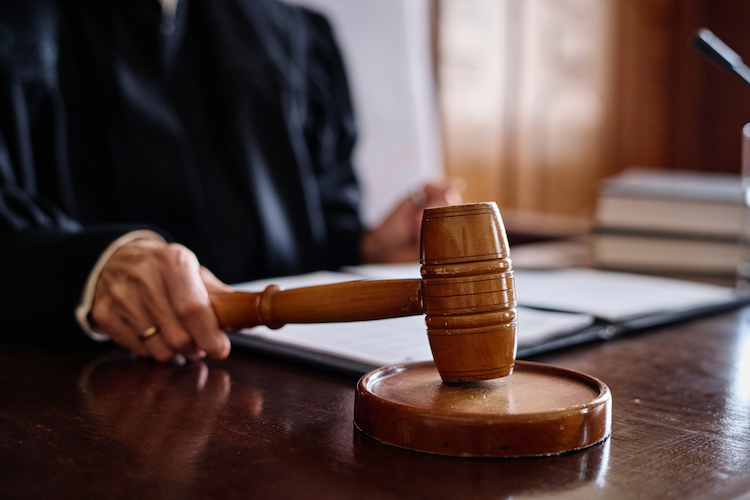SCOTUS Tackles Key Constitutional Issues as It Kicks Off November Session

The U.S. Supreme Court resumed oral arguments on October 30, as it begins its November session. The cases before the justices this session involve significant issues of constitutional law including due process, free speech, and gun rights.
Below is a brief summary of the cases before the Court:
Culley v. Marshall: The case arises out of the seizure and retention of the plaintiffs’ vehicles under Alabama’s Civil Asset Forfeiture (CAF) statute. Neither plaintiff/owner was present when the vehicle was seized, and they were never charged with any crime. While the plaintiffs ultimately prevailed on summary judgment by asserting the innocent owner defense available under the Alabama statute, the court process took almost a year. The plaintiffs subsequently filed suit, arguing that the failure of state and local governments to provide them with a prompt hearing after their vehicles were seized violated their due process rights. The Supreme Court must now decide the proper test for lower courts to apply when determining if a prompt post-deprivation hearing is warranted. The justices have agreed to decide the following issue: “Whether district courts, in determining whether the due process clause requires a state or local government to provide a post-seizure probable-cause hearing prior to a statutory judicial-forfeiture proceeding and, if so, when such a hearing must take place, should apply the “speedy trial” test employed in United States v. $8,850 and Barker v. Wingo or the three-part due process analysis set forth in Mathews v. Eldridge.”
Lindke v. Freed: The case is part of a growing trend of cases involving whether a public official who selectively blocks access to his or her social media account has engaged in state action subject to constitutional scrutiny. In such cases, most circuit courts of appeals have considered a broad range of factors, including the account’s appearance and purpose. In this case, the Sixth Circuit focused exclusively on whether the official was performing a “duty of his office” or invoking the “authority of his office.” The Court will now decide “[w]hether a public official’s social media activity can constitute state action only if the official used the account to perform a governmental duty or under the authority of his or her office.”
O’Connor-Ratcliff v. Garnier: In a related First Amendment case involving social media, the justices will address “[w]hether a public official engages in state action subject to the First Amendment by blocking an individual from the official’s personal social media account, when the official uses the account to feature their job and communicate about job-related matters with the public, but does not do so pursuant to any governmental authority or duty.”
Vidal v. Elster: The case involves whether the federal government must provide registration of the “Trump too small” trademark. Relying on the Supreme Court’s prior decisions in Matal v. Tam, 582 U.S. 218 (2017),and Iancu v. Brunetti, 588 U.S. ___ (2019), the owner of the mark alleges that prohibiting registration restricts speech critical of public figures, which runs afoul of the First Amendment. The specific issue before the Court is “[w]hether the refusal to register a trademark under 15 U.S.C. § 1052(c) violates the free speech clause of the First Amendment when the mark contains criticism of a government official or public figure.”
The Court will decide all of the cases by the end of the term in June 2024. Please check back for updates.
Previous Articles
SCOTUS Decision in Bowe v. United States Is First of the 2026 Term
by DONALD SCARINCI on February 5, 2026
In Bowe v. United States, 607 U.S. ___ (2026), the U.S. Supreme Court held that Title 28 U.S.C. § ...
SCOTUS Rules State Can’t Immunize Parties from Federal Civil Liability
by DONALD SCARINCI on January 29, 2026
In John Doe v. Dynamic Physical Therapy, LLC, 607 U.S. ____ (2025) the U.S. Supreme Court held that...
Supreme Court to Address Racial Discrimination in Jury Selection
by DONALD SCARINCI onWhile the U.S. Supreme Court has concluded oral arguments for the year, it continues to add cases t...
The Amendments
-
Amendment1
- Establishment ClauseFree Exercise Clause
- Freedom of Speech
- Freedoms of Press
- Freedom of Assembly, and Petitition
-
Amendment2
- The Right to Bear Arms
-
Amendment4
- Unreasonable Searches and Seizures
-
Amendment5
- Due Process
- Eminent Domain
- Rights of Criminal Defendants
Preamble to the Bill of Rights
Congress of the United States begun and held at the City of New-York, on Wednesday the fourth of March, one thousand seven hundred and eighty nine.
THE Conventions of a number of the States, having at the time of their adopting the Constitution, expressed a desire, in order to prevent misconstruction or abuse of its powers, that further declaratory and restrictive clauses should be added: And as extending the ground of public confidence in the Government, will best ensure the beneficent ends of its institution.





